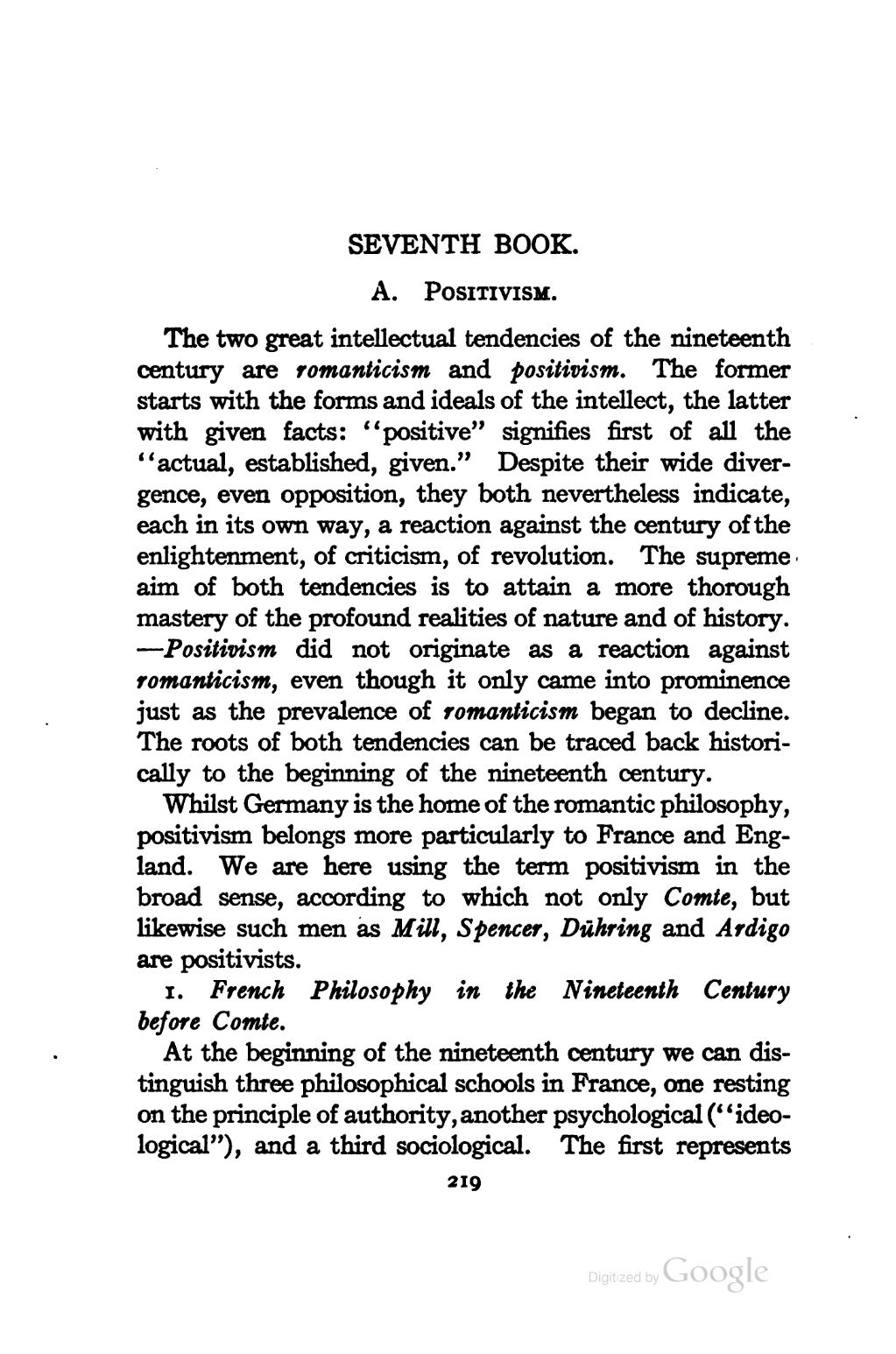SEVENTH BOOK
A. Positivism
The two great intellectual tendencies of the nineteenth century are romanticism and positivism. The former starts with the forms and ideals of the intellect, the latter with given facts: "positive" signifies first of all the "actual, established, given." Despite their wide divergence, even opposition, they both nevertheless indicate, each in its own way, a reaction against the century of the enlightenment, of criticism, of revolution. The supreme aim of both tendencies is to attain a more thorough mastery of the profound realities of nature and of history.—Positivism did not originate as a reaction against romanticism, even though it only came into prominence just as the prevalence of romanticism began to decline. The roots of both tendencies can be traced back historically to the beginning of the nineteenth century.
Whilst Germany is the home of the romantic philosophy, positivism belongs more particularly to France and England. We are here using the term positivism in the broad sense, according to which not only Comte, but likewise such men as Mill, Spencer, Dühring and Ardigo are positivists.
1. French Philosophy in the Nineteenth Century before Comte.
At the beginning of the nineteenth century we can distinguish three philosophical schools in France, one resting on the principle of authority, another psychological ("ideological"), and a third sociological. The first represents

